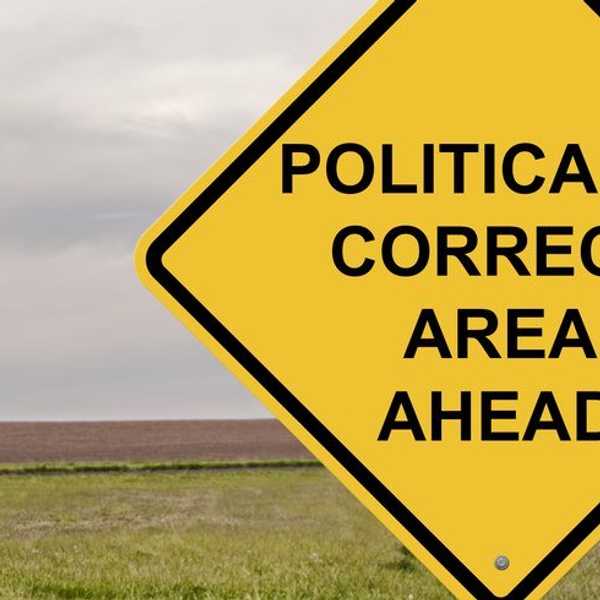Americans stand in a perilous and fragile environment today. As conflicts erupt and problems arise around us, we battle our own inner tensions and issues, and our country appears to be more divided than ever before. With the emerging election, America has become increasingly polarized. Accusations fly, tensions flare and tempers rise. And adding to the conflict is a concept conceived with good intentions but that at some point became too extreme: political correctness. The term “political correctness” originated in the time period following the Russian Revolution, where it was used to describe how closely individual beliefs, practices and policies observed those of the Communist Party of the Soviet Union. It appeared on the American political stage in the late 1970s, when liberal politicians used the term “political correctness” to critique extremely left-wing rhetoric. Conservatives alike began to use it early in the 1990s, mostly to decry the leftward shift in college curriculum. The term’s usage has recently seen a resurgence, and 2015 may well be a year that is remembered for its extreme political correctness. The abbreviation “PC” is so widely used and understood that its meaning has expanded and changed. Merriam-Webster defines being politically correct as “conforming to a belief that language and practices which could offend political sensibilities (as in matters of sex or race) should be eliminated.”
In an age where problem-solving requires utmost cooperation, we must remember to appeal to our basic connection to one another as human beings. It seems that right now, we do the opposite. Where political correctness once changed our language for the better, practically erasing despicable slurs from the American vocabulary, it now allows for anyone to accuse someone with a differing opinion of being a racist or a bigot. Rather than encourage discussion, it silences dissent.
In 2015, instances of the “PC Police” and its reach abounded, especially on college campuses. For example, at Yale, the Intercultural Affairs Committee sent an email to members of the school reminding them to be conscious of their Halloween costumes and who they may offend. Faculty member and administrator Erika Christakis sent another email challenging this proposition: “I know that many decent people have proposed guidelines on Halloween costumes from a spirit of avoiding hurt and offense. I laud those goals, in theory, as most of us do. But in practice, I wonder if we should reflect more transparently, as a community, on the consequences of an institutional (which is to say: bureaucratic and administrative) exercise of implied control over college students.” Hundreds of students criticized her view, and some even confronted her husband, who is also employed by the school.
In essence, this debate captures the spirit of politically correct culture and its reactions. Does protection from offense take precedence over freedom of speech, and are these two concepts, wholly important on their own, mutually exclusive? The answers, it seems, are still being debated. What extreme PC culture gets most wrong is the idea that people can no longer think for themselves. Christakis in her email was trying to express that college students should not have to be told what to wear—they should be allowed to make their own decisions, and even to—gasp—make mistakes. In muting dissension, political correctness in its extreme form removes responsibility from individuals. By labeling an opinion as racist, bigoted or sexist, it is quick to quell anyone who fears being called intolerant. This is of course not a call to turn off the lights and return to darker days where derogatory references to someone’s race, gender or sexuality were as loosely strewn as the term “p.c.” itself is now. Rather, it is a call to question who gets to dictate how we may act, if not ourselves. In order to truly understand someone different from ourselves and what they may or may not be offended by, we must reach this conclusion on our own. Extreme political correctness is prejudicial in that it imposes guidelines on people who may be reluctant to accept them because they cannot sympathize. Political correctness does not cure people of bad thoughts—it buries them. And while it boasts to champion the rights of others, political correctness in its extreme form limits a person’s right to speech. Already, a reaction to political correctness has bubbled; consider the level of support for the Republican nominee who has no filter, or the fact that a Rasmussen Reports poll found that 79 percent of American adults consider political correctness “a serious problem.”
The new year took its first steps with trepidation, and halfway to 2017 we continue to see an explosion of conflicts. At the center of our country’s future stands the presidential race between Hillary Clinton and Donald Trump, each of whom represent two extremes of political correctness—both dangerous. And while the national stage turns increasingly volatile, we as individuals must remain levelheaded. It is easy to accuse one another of being a bigot or a racist; yet few would be up to the daunting task of challenging someone who claims to defend one’s rights. Those who can still see clearly in this muddled atmosphere understand that rather than adopt the complex guidelines of political correctness, we should stick with more basic rules: to act with empathy, respect, and integrity. Only in this way can we ensure that we do not harm others while simultaneously upholding our right to express, debate and challenge.





















